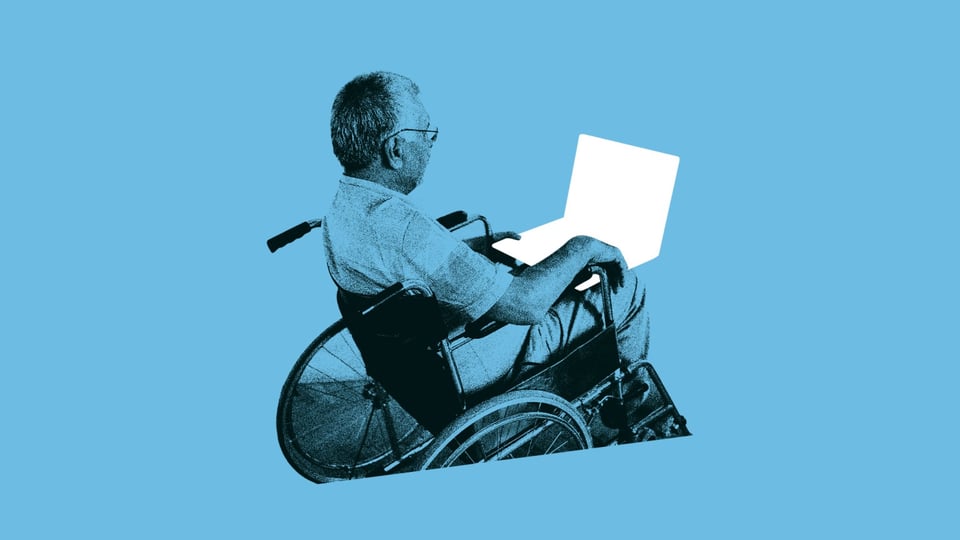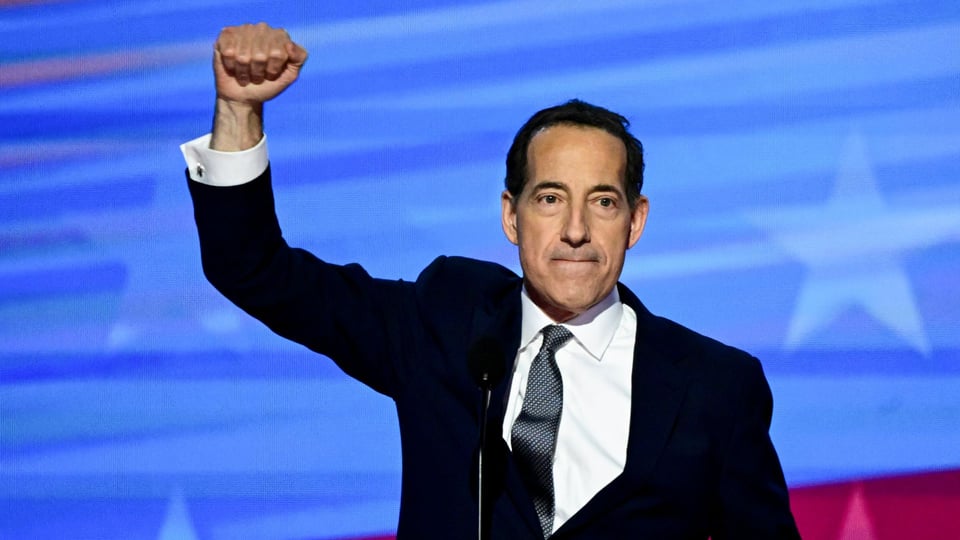Tuesday, December 3, 2024. Annette’s News Roundup.
Examples of what Elected Officials can do to protect Democracy.
Only cooperate with Trump appointees if traditional protocols and practices are met.

Senator Chuck Schumer, Majority Leader.
The top Senate Democrat offered on Monday to cooperate with Republicans next year in considering President-elect Donald J. Trump’s choices for his cabinet and other top administration jobs, and called for the G.O.P. to adhere to traditional Senate vetting standards that Mr. Trump has threatened to skip.
In a letter to Senator John Thune, the South Dakota Republican who is set to become majority leader in January, Senator Chuck Schumer, Democrat of New York and the current leader, said that he and his colleagues “stand ready and willing to work” with Senate Republicans in considering the nominations, several of which have already proved to be explosive. The latest was announced on Saturday, when Mr. Trump disclosed that he intended to name Kash Patel, a loyalist and right-wing provocateur, as director of the F.B.I.
“In particular,” Mr. Schumer wrote to Mr. Thune, “we commit to working in a bipartisan fashion to process each nominee by reviewing standard F.B.I. background-investigation materials, scheduling hearings and markups in the committees of jurisdiction, and considering nominees on the Senate floor.”
The letter comes as Mr. Trump has threatened to skirt the Senate and install some of his nominees during recesses, and some Senate Republicans have suggested that he should do so to get around resistance from Democrats. The president-elect’s advisers have also suggested that he should skip F.B.I. background checks for his nominees in favor of vetting by private security firms, a notion that some Senate Republicans have also embraced in recent days.
Both ideas have met resistance from some Republicans and Democrats who contend that they would constitute an abandonment of the Senate’s constitutional role of providing advice and consent on nominees. They worry that it would harm the institution and weaken the Senate’s ability to provide oversight of federal agencies.
In his letter, Mr. Schumer urged Republicans not to let that happen.
“In our system of checks and balances, this Senate plays a vital role in ensuring the president appoints well-qualified public officials that will dutifully serve the American people and honor their oaths to the Constitution,” Mr. Schumer wrote. “Regardless of party, the Senate has upheld this sacred duty for generations and we should not and must not waver in our constitutional duty.”
The letter from Mr. Schumer does not commit Democrats to supporting any nominees, and they are unlikely to vote for many, though more conventional picks such as Senator Marco Rubio, Republican of Florida and Mr. Trump’s choice for secretary of state, could draw significant bipartisan backing.
The top Democrats on the Senate committees are expected to soon make their own overtures to the incoming Republican chairmen.
Since Democrats will be in the minority, they will lack the votes to block Trump nominees who can be approved on simple majority votes, but they can throw up procedural obstacles that would slow the nominations. They are counting on using any hearings to persuade some Republicans to join them in pushing back on candidates they find objectionable, and also hope that Republicans insist on upholding the Senate’s role in the confirmation process.
Mr. Thune has said he intends to have the appointees follow the usual steps toward confirmation in the Senate, but has also said Republicans would preserve their options when it came to Mr. Trump’s nominees, including on recess appointments if necessary.
Mr. Schumer has been quiet about the prospective nominees themselves, though fellow Democrats have raised alarm about Mr. Patel and others, including former Representative Matt Gaetz, who withdrew from consideration as attorney general after it became obvious he lacked the Republican votes to be confirmed. Mr. Schumer has wanted to keep the focus on divisions within the G.O.P. on the nominees and not let Republicans blame Democrats for obstructing them, a dynamic that could lead Republicans to unify.
On Sunday, Senator Ted Cruz, Republican of Texas, said he had no issues with Mr. Trump’s picks.
“I think the entire slate of cabinet nominees President Trump has put forward is very strong,” Mr. Cruz said on CBS’s “Face the Nation.” “I believe every one of these cabinet nominees is going to be confirmed by the Senate.”
But Senator Mike Rounds, Republican of South Dakota, said that while the incoming president had the right to choose his top advisers, the Senate was not obligated to confirm all of them if senators saw issues.
“I think the vast majority of the members of the Senate will do the same thing: They will give a benefit of the doubt to the president with any one of his nominees,” Mr. Rounds said on ABC’s “This Week.” “But then we have a constitutional role to play in that we provide advice and consent. And, once again, that can be sometimes advice, sometimes it is consent.”
While Mr. Trump will not take office until Jan. 20, Republicans will take control of the Senate on Jan. 3 and can convene committee hearings on the prospective nominees when they take charge, clearing the way for some to be approved immediately after Mr. Trump is sworn in. (New York Times)
Call Majority Leader Schumer’s office and tell him you agree with him on traditional constitutional checks on Trump nominees. Call your own Senators and tell them you support Chuck Schumer’s position.
U.S. Senate: Contacting U.S. Senators
Congress Has One Month to Save a Key Medicare Benefit

When Gwen Williams’ mother was dying, taking her to an in-person appointment to get more medicine seemed impossible. So Williams made a telehealth appointment with the doctor—a video call. It was that easy.
Her comfort was paramount,” Williams, who lives in Minnesota, recounts. “My mother wasn’t conscious during the visit, but [the doctor] was able to see her and was able to get the hospice medications and everything refilled.”
Williams’ mother was on Medicare, as is she. Since 2020, Medicare has covered a wide range of remote medical services, some in critical situations like theirs, and others for routine care. Around one in four telehealth appointments are made by people on Medicare.
fact that Medicare will abruptly cut off that coverage for most specialties on January 1—barely a month away—Williams said, “just blows my mind.”
What we now call telehealth, an umbrella term for remote and digitally assisted medical care, was first developed by NASA in 1960 as a suite of tools to monitor astronauts’ health in space. While it has been gaining traction as a widespread, normalized aspect of care since the beginning of this century, telehealth really exploded in 2020 with the onset of the Covid-19 pandemic.
Until then, for Medicare patients—which includes most Americans over 65, and some younger disabled people—remote care coverage had been limited. In rural areas, for instance, people on Medicare could speak to a non-local specialist via telehealth, but not from home; they still had to go to a local hospital to place the call.
But on March 6, 2020, the Centers for Medicare and Medicaid Services temporarily expanded Medicare’s telehealth coverage to all specialties. That expansion, renewed in 2022, is set to expire at the end of the year, impacting more than 65 million Americans.
Multiple bills have been introduced in the 118th Congress to preserve Medicare telehealth provisions and continue allowing people on Medicare to use telehealth flexibly, but all still await votes in both the House and Senate. Perhaps the likeliest to pass, the Telehealth Modernization Act of 2024, introduced by Rep. Buddy Carter (R-Ga.), received widespread, bipartisan support from members of the House Committee on Energy and Commerce and its subcommittee on health.
“Seniors, individuals with mobility issues, and those living in rural areas rely on telehealth,” Rep. Carter said in a statement to Mother Jones, calling the act “critical legislation that will extend telehealth flexibilities to get Medicare beneficiaries the life-saving health care they need.”
Where so many other health issues can be partisan or controversial, says Telehealth Access for America executive director Alye Mlinar, telehealth manages to be bipartisan. Mlinar hopes the bipartisan support “critical for really any issue” that telehealth has garnered will help lead to another congressional extension.
Epilepsy Foundation chief medical officer Dr. Jacqueline French’s organization has supported telehealth access for people with epilepsy even before the start of the Covid pandemic.
“There’s nothing that we learn from a physical exam that we could not learn from just talking to a person,” said French, who is also a professor of neurology at New York University Langone Health’s Comprehensive Epilepsy Center. The Epilepsy Foundation is one member of Telehealth Access for America, a consortium that includes, among other groups, the American Medical Association, Johns Hopkins Medicine and the National Down Syndrome Society.
There are plenty of patients who can’t make long journeys at all—but for many others, telehealth is still a way to avoid travel risks. Traveling with uncontrolled seizures, for instance, can be dangerous, French notes.
Even if Congress does not extend its current, wide coverage of telehealth for Medicare recipients, a handful of protections—mainly around dialysis, strokes, and mental health—would remain.
Williams, whose mother also relied on telehealth, also praised the separate ways it benefits her: When the doctor who prescribed their mental health medication moved away, telehealth prevented a disruption in her care. She likens the often needless in-person visits to “a meeting that could have just been an email.”
“Just have to have a conversation with your doctor,” Williams said, “paying for transportation, paying for parking if you drive—it’s a real barrier when all you need is to have a conversation, to continue care, or ask a question.”
But there are limitations to a blanket extension of the program, argues Medicare Rights Center senior counsel Casey Schwarz.
We had really hoped Congress would take the opportunity to look carefully at what a telehealth benefit could and should look like, because while the pre-pandemic status quo is inadequate,” Schwarz told Mother Jones, “A complete lack of restriction or breaks on telehealth services is also inappropriate, and we think has some risk for beneficiaries.”
Schwarz said that she had heard from Medicare recipients “who have received what they believe to be substandard care through telehealth because something that they think would have been noticed or caught in an in-person visit was missed.”
An investigation by Mayo Clinic researchers found that diagnostic accuracy for people on telehealth ranged from 77 percent for ear, nose, and throat doctors to 96 percent for psychiatrists across a 90-day period in 2020. However, specialists, such as rheumatologists, were more likely to request an in-person appointment to continue care, in comparison to primary care doctors.
Schwarz also says that telehealth cannot replace other forms of compliance with civil rights laws around accessibility, like the Americans with Disabilities Act.
“We don’t want to see telehealth fill in a way for providers to indicate that they do not need to meet physical access requirements because they provide telehealth services,” she said.
In-person services, especially from specialists, can’t always be replaced—and people like Schwarz raise the risk of telehealth, often cheaper for providers, being used to justify cuts to in-person services. Williams, for instance, does see their neurologists in-person, so they are able to assess her reflexes and the progression of their neuropathy.
With just weeks until the end of the year and Medicare’s telehealth termination, there is not much time for individual bills to pass through Congress and be signed into law by President Biden.
Mlinar, however, is optimistic that an extension for Medicare telehealth recipients will be part of an annual end-of-year package negotiated by Congress “given the overwhelming support.”
“The biggest question at this point,” Mlinar said, “is [for] how long.” (Mother Jones).
Call your Congressperson and tell them what you expect of them.
The Vindman-Musk Feud. What it is. What it portends.
Elon Musk started by accusing Alexander Vindman of treason and threatening him with the death penalty. Vindman is a former National Security Council member and a witness at Trump’s Second Impeachment Trial of treason.
Musk’s threat was an attempt not just to frighten Vindman and a scare tactic to disturb anyone involved with the Impeachment Hearings and all Trump opposition, as well as to quell future opposition.

Elon Musk has accused Alexander Vindman of working for Ukrainian oligarchs, labeling him a traitor and implying he could face the death penalty. pic.twitter.com/3ht7Fx99r7
— nunya68 🇱🇧🇵🇸🔻🔻🔻 (@SultanaNunya) November 28, 2024
Vindman responded by calling Musk a traitor, working for Putin.

Call the White House. Tell the President you support his pardon for Hunter and tell him you hope he will protect others, including Alexander Vindman and all members and witnesses of the January 6 Select Committee.
The White House switchboard is at 202-456-1414 or the comments line is at 202-456-1111 during business hours. The President also can be reached here.
What can you do?
Two-three calls a day will help keep Democracy intact.
The specific reasons for you to call will change but your job remains the same - make those calls. Make sure your issues are heard. Remember, elected officials count how many opinions they hear on any issue. Your calls matter.
Here 👇 a man from Turkey offers advice for the fearful.
Trump Will Overplay His Hand. Here’s How to Be Ready.
American democracy is about to undergo a serious stress test. I know how it feels, in part because I lived through the slow and steady march of state capture as a journalist working in Recep Tayyip Erdoğan’s Turkey.
Over a decade as a high-profile journalist, I covered Turkey’s descent into illiberalism, having to engage in the daily push and pull with the government. I know how self-censorship starts in small ways but then creeps into operations on a daily basis. I am familiar with the rhythms of the battle to reshape the media, state institutions and the judiciary.
Having lived through it, and having gathered some lessons in hindsight, I believe that there are strategies that can help Democrats and Trump critics not only survive the coming four years, but come out stronger. Here are six of them.
Don’t Panic — Autocracy Takes Time
President-elect Donald Trump’s return to power is unnerving but, as I have argued previously, America will not turn into a dictatorship overnight — or in four years. Even the most determined strongmen face internal hurdles, from the bureaucracy to the media and the courts. It took Erdoğan well over a decade to fully consolidate his power. Hungary’s Viktor Orbán and Poland’s Law and Justice Party needed years to erode democratic norms and fortify their grip on state institutions.
I am not suggesting that the United States is immune to these patterns, but it’s important to remember that its decentralized system of governance — the network of state and local governments — offers enormous resilience. Federal judges serve lifetime appointments, states and governors have specific powers separate from those granted federally, there are local legislatures, and the media has the First Amendment as a shield, reinforced by over a century of legal precedents. Sure, there are dangers, including by a Supreme Court that might grant great deference to the president. But in the end, Donald Trump really only has two years to try to execute state capture. Legal battles, congressional pushback, market forces, midterm elections in 2026 and internal Republican dissent will slow him down and restrain him. The bottom line is that the U.S. is too decentralized in its governance system for a complete takeover. The Orbanization of America is not an imminent threat.
Don’t Disengage — Stay Connected
After a stunning electoral loss like this, there’s a natural impulse to shut off the news, log off social media and withdraw from public life. I’ve seen this with friends in Turkey and Hungary, with opposition supporters retreating in disillusionment after Erdoğan’s or Orban’s victories. Understandably, people want to turn inwards.
Dancing, travel, meditation, book clubs — it’s all fine. But eventually, in Poland, Hungary and Turkey, opponents of autocracy have returned to the fight, driven by a belief in the possibility of change. So will Americans.
Nothing is more meaningful than being part of a struggle for democracy. That’s why millions of Turks turned out to the polls and gave the opposition a historic victory in local governments across Turkey earlier this year. That’s how the Poles organized a winning coalition to vote out the conservative Law and Justice Party last year. It can happen here, too.
The answer to political defeat is not to disconnect, but to organize. You can take a couple of days or weeks off, commiserate with friends and mute Elon Musk on X — or erase the app altogether. But in the end, the best way to develop emotional resilience is greater engagement.
Don’t Fear the Infighting
Donald Trump’s victory has understandably triggered infighting inside the Democratic Party and it looks ugly. But fear not. These recriminations and finger-pointing are necessary to move forward. In Turkey, Hungary and Poland, it was only after the opposition parties faced their strategic and ideological misalignment with society that they were able to begin to effectively fight back.
Trump has tapped into the widespread belief that the economic order, labor-capital relations, housing and the immigration system are broken. You may think he is a hypocrite, but there is no doubt that he has convinced a large cross-section of American society that he is actually the agent of change — a spokesman for their interests as opposed to “Democratic elites.” This is exactly what strongmen like Erdoğan and Orban have achieved.
For the Democratic Party to redefine itself as a force for change, and not just as the custodian of the status quo, it needs fundamental shifts in how it relates to working people in the U.S. There is time to do so before the midterms of 2026.
Charismatic Leadership Is a Non-Negotiable
One lesson from Turkey and Hungary is clear: You will lose if you don’t find a captivating leader, as was the case in 2023 general elections in Turkey and in 2022 in Hungary. Coalition-building or economic messaging is necessary and good. But it is not enough. You need charisma to mobilize social dissent.
Trump was beatable in this election, but only with a more captivating candidate, as Nancy Pelosi has been hinting. For Democrats, the fundamental mistake after smartly pushing aside President Joe Biden was bypassing the primaries and handpicking a candidate. Future success for the party will hinge on identifying a candidate who can better connect with voters and channel their aspirations. It should not be too hard in a country of 350 million.
Last year’s elections in Poland and Turkey showcased how populist incumbents can be defeated (or not defeated, as in general elections in Turkey in 2023) depending on the opposition’s ability to unite around compelling candidates who resonate with voters. Voters seek authenticity and a connection — give it to them.
Skip the Protests and Identity Politics
Soon, Trump opponents will shake off the doldrums and start organizing an opposition campaign. But how they do it matters. For the longest time in Turkey, the opposition made the mistake of relying too much on holding street demonstrations and promoting secularism, Turkey’s version of identity politics, which speaks to the urban professional and middle class but not beyond. When Erdoğan finally lost his absolute predominance in Turkish politics in 2024, it was largely because of his mismanagement of the economy and the opposition’s growing competence in that area.
Trump’s appeal transcends traditional divides of race, gender and class. He has formed a new Republican coalition and to counteract this, Democrats too, must broaden their tent, even if means trying to appeal to conservatives on some issues. Opposition over the next four years must be strategic and broad-based. Street protests and calls to defend democracy may be inspirational, but they repel conservatives and suburban America. Any grassroots action must be coupled with a clear, relatable economic message and showcase the leadership potential of Democratic mayors and governors. Identity politics alone won’t do it.
Have Hope
Nothing lasts forever and the U.S. is not the only part of the world that faces threats to democracy — and Americans are no different than the French, the Turks or Hungarians when it comes to the appeal of the far right. But in a country with a strong, decentralized system of government and with a long-standing tradition of free speech, the rule of law should be far more resilient than anywhere in the world.
Trump’s return to power certainly poses challenges to U.S. democracy. But he will make mistakes and overplay his hand — at home and abroad. America will survive the next four years if Democrats pick themselves up and start learning from the successes of opponents of autocracy across the globe. (Asli Aydintasbas, visiting fellow at the Brookings Institution, Politico).
Jamie Raskin and other Democrats are putting in plans to lead the resistance.
Jamie Raskin moves towards bid to oust top Judiciary Democrat Nadler

Rep. Jamie Raskin speaks at the Democratic National Convention in Chicago, Illinois, on Aug. 19, 2024.
Why it matters: Raskin has seen a groundswell of support from colleagues serious enough that it prompted leadership to check in with him about his intentions, sources familiar with the matter tell Axios.
The impending Trump administration and fully GOP-controlled Congress is fueling a multi-committee push to oust some of House Democrats' oldest leaders in favor of more vigorous alternatives.
What he's saying: "I'm not ruling anything out at this point," Raskin said Sunday in a CNN "State of the Union" appearance.
He added: "We're engaged in conversations all with the purpose of creating ... a really effective and muscular opposition."
Raskin's office told Axios he hopes to make his plans clear to his colleagues next week.
What we're hearing: Raskin is leaning towards running after a week of deliberations and has been calling colleagues to gauge support, several senior Democratic sources told Axios.
Raskin had privately dismissed the notion last week, but a "very heavy pressure campaign" waged by colleagues from various factions swayed him to seriously consider it, according to numerous sources.
The most notable exhortation came from House Speaker Emerita Nancy Pelosi (D-Calif.), the New York Times first reported and sources confirmed to Axios.
Raskin has told colleagues that leadership approached him last month about his plans, according to one lawmaker familiar with his comments.
Yes, but: "Leader Hakeem Jeffries has great respect for Ranking Member Jerry Nadler and spent 10 productive years serving alongside him on the House Judiciary Committee," Jeffries spokesperson Andy Eichar told Axios.
Eichar added: "By tradition, House Democratic leadership does not get involved in internal caucus races and any suggestion to the contrary is false, speculative and entirely reliant once again on unnamed sources."
A spokesperson for Pelosi did not respond to multiple requests for comment.
State of play: Raskin, 61, is the the current ranking member of the House Oversight Committee and a former Jan. 6 committee member.
Nadler, 77, has led Democrats on the Judiciary Committee since 2017 and said in a letter last month he is seeking to retain his role.
There have been pervasive concerns about Nadler's ability to lead his panel in opposition to Republicans and President-elect Trump.
The other side: "I am ready, willing, and able to take on Donald Trump and the House Republicans. I am younger than President Trump, and I have fought him my entire career both in NY and Washington, DC," Nadler said in a statement to Axios.
"I will put my record of accomplishment as Chairman and Ranking Member against anyone and I'm honored to have the strong support of the caucus," he added.
Nadler has been making calls to colleagues during the Thanksgiving break, according to a source close to the New Yorker.
The source said that, in addition to the "strong support" Nadler has received, some have said a challenge would do "serious harm" to House Democrats.
Zoom out: This would be the third battle between a septuagenarian committee ranking member and one or more relatively younger challengers.
Rep. Jared Huffman (D-Calif.) is challenging House Natural Resources Committee ranking member Raúl Grijalva (D-Ariz.) for his role.
And Reps. Angie Craig (D-Minn.) and Jim Costa (D-Calif.) are both vying to oust Agriculture Committee ranking member David Scott (D-Ga.).
In addition to the impending Republican trifecta, Democrats' lack of committee term limits is a significant driver behind these efforts.
What's next: House Democrats' steering committee is expected to meet this month to vote on its recommendations for committee roles.
The full House Democratic caucus will then have to vote, likely also this month, on whether to ratify those picks. (Axios).